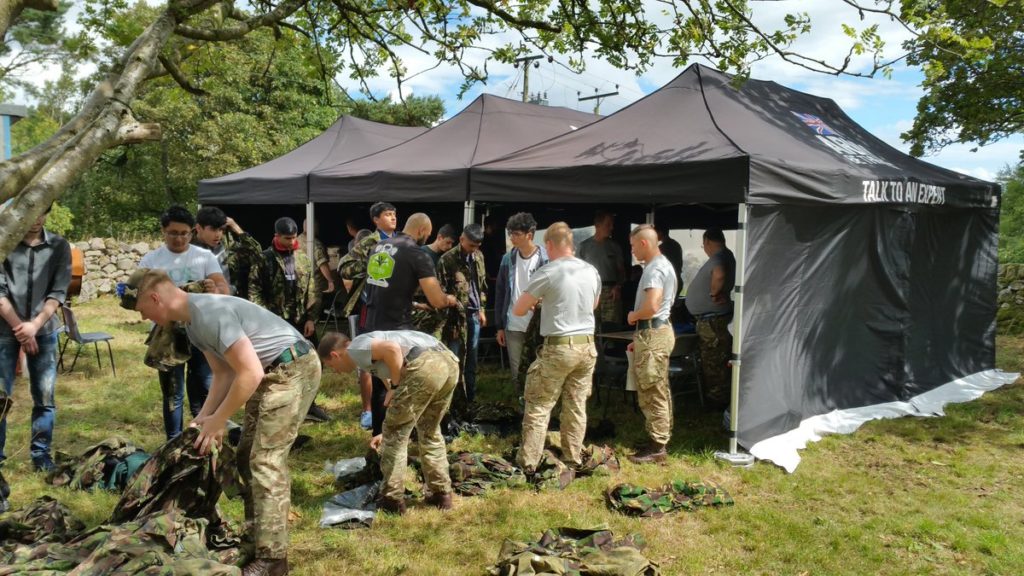Research homepage
Most of the research that we do is through programme evaluations that look at impact that our funding has had in a particular area of focus.
The information on this page is about other research that we have available
The Map of Need

With a grant from us, the Northern Hub for Veterans and Families Research at Northumbria University used funding to develop a map of veterans’ and their families’ welfare needs across the whole of the UK, based on data from public sources, statistics, health data and data directly from Armed Forces charities. We have a selection of reports that use this data.
Consultations
At the Trust we have run consultations with our community to ensure the programmes we wish to run are relevant – meeting specified needs and based on what the Armed Forces community identifies as a current challenge.
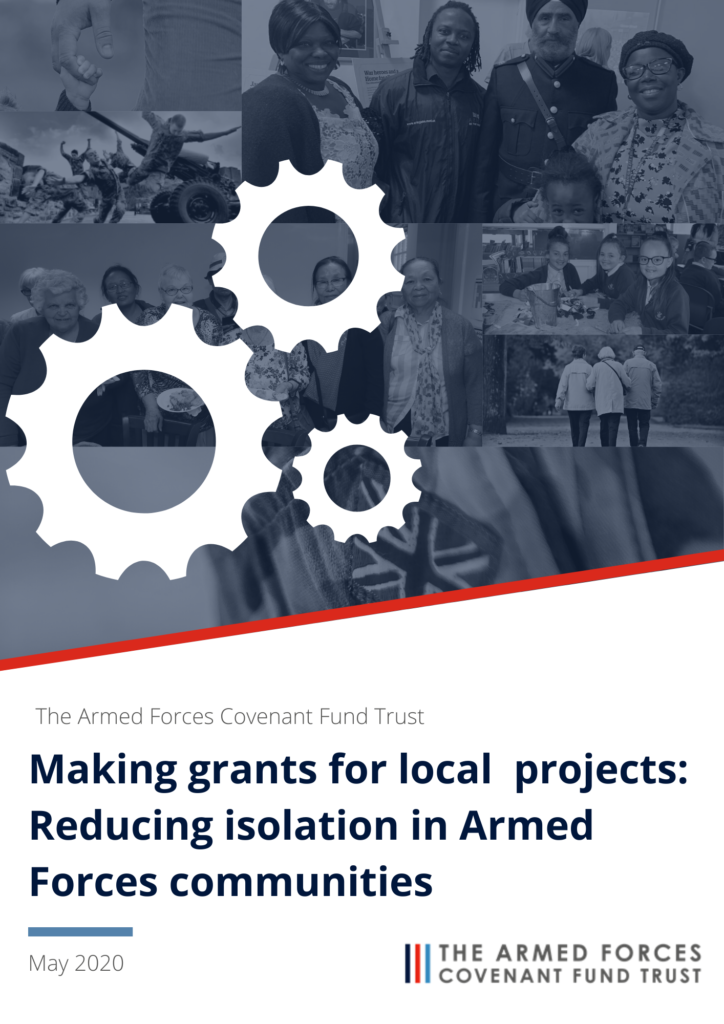
This consultation explored themes for our grantmaking.
The Trust ran an open consultation in January 2020, to help inform our funding programmes for 2020 and beyond. We received our biggest response yet from individuals from the Forces community – 21% of who were veterans – and local organisations, of which, 11% were local authorities.
The findings of this report ultimately led to the design of the Force for Change programme, and has informed our future grant making.
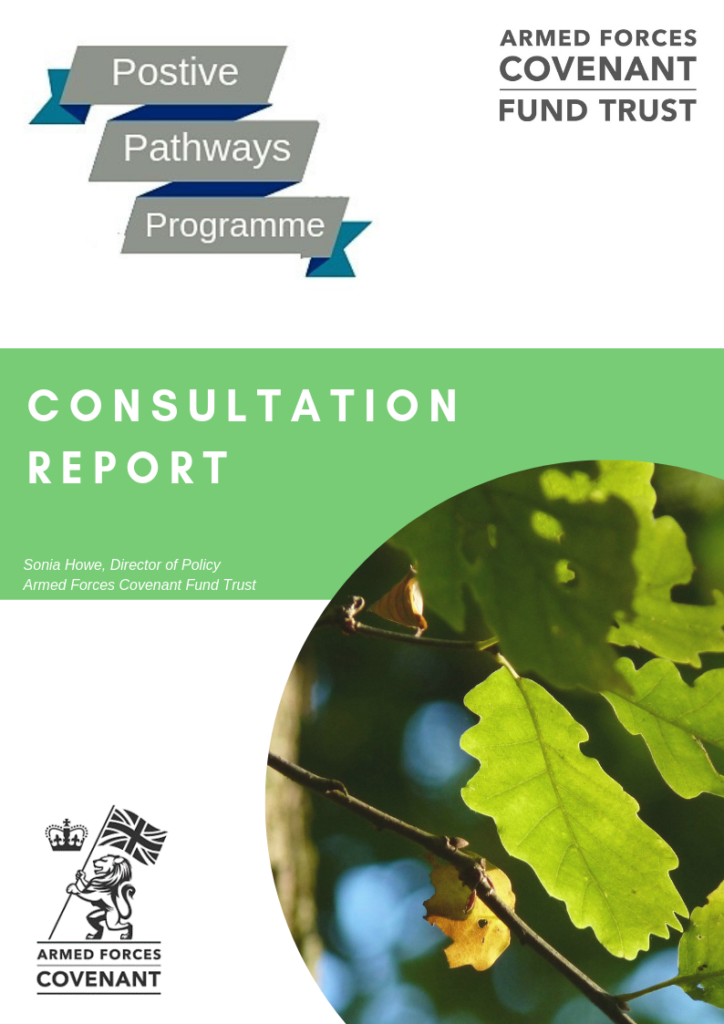
In the Autumn Budget 2018, the Chancellor of the Exchequer announced £10M to support Veterans’ Mental Health and Wellbeing needs.
The Armed Forces Covenant Fund Trust was asked by HM Government to deliver this funding. We ran a consultation to share our ideas about what types of projects this programme might support through grants
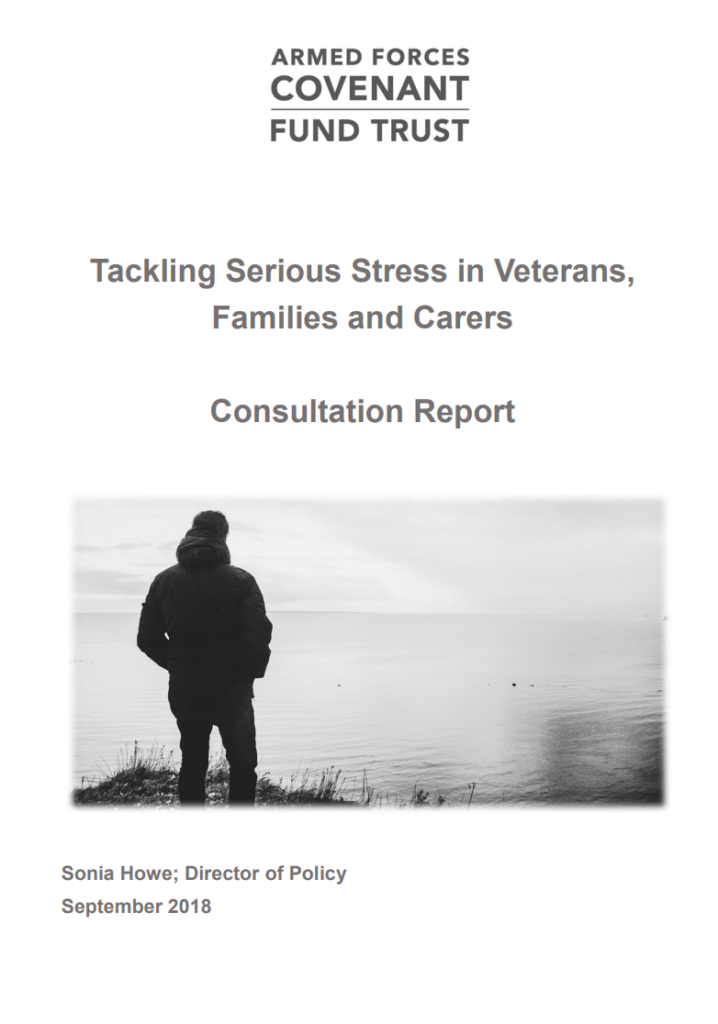
This £4M programme was designed to look at how we can best support veterans who are very unwell; while also recognising the needs of their carers, partners and children.
The Armed Forces Covenant Fund Trust ran a consultation to shape the programme
Other reports
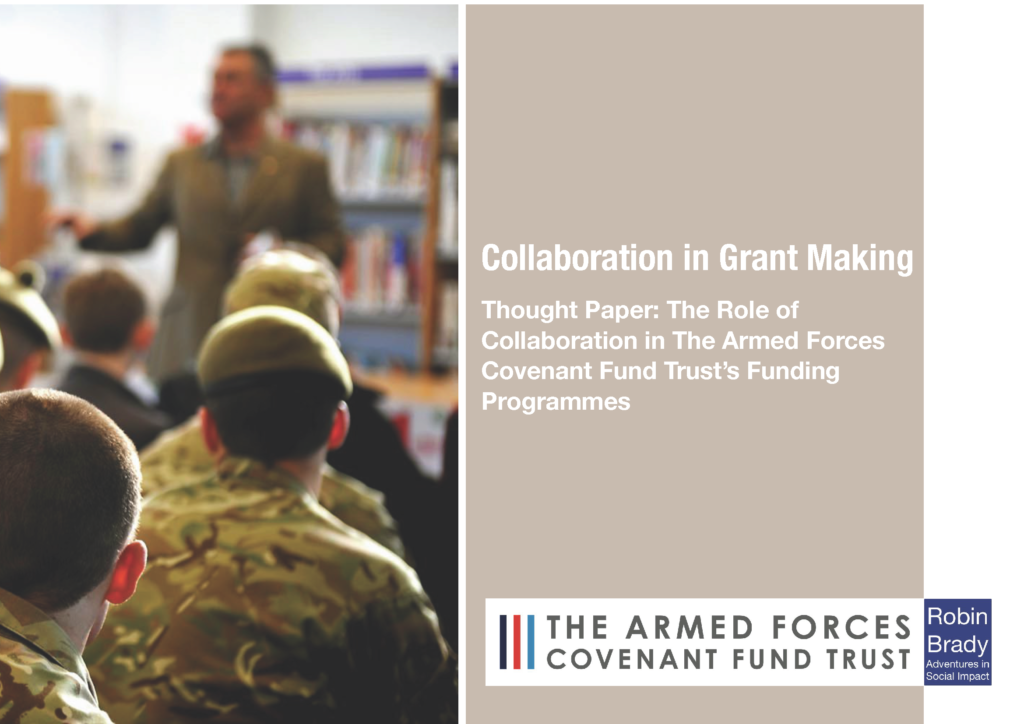
Collaboration in grant making: a thought paper
The Armed Forces Covenant Fund Trust (AFCT) has published a thought paper by an independent consultancy, that explores ways in which the AFCT has encouraged collaboration, and asks some key questions for the future.
The paper identifies five key areas featured in collaborations that have been supported by the Trust.
- Leadership engagement, with leaders at all levels.
- The observation that issue or cause-based collaboration is better or more effective than funding-based collaboration.
- Relationship building, leading to trust building, is crucial for effective collaboration.
- Planning is also important, as is the principle that all partners are equal, with mechanisms developed to enable parity for organisations of different size.
Through exploring questions on collaboration, the paper has raised some interesting questions for the future.
